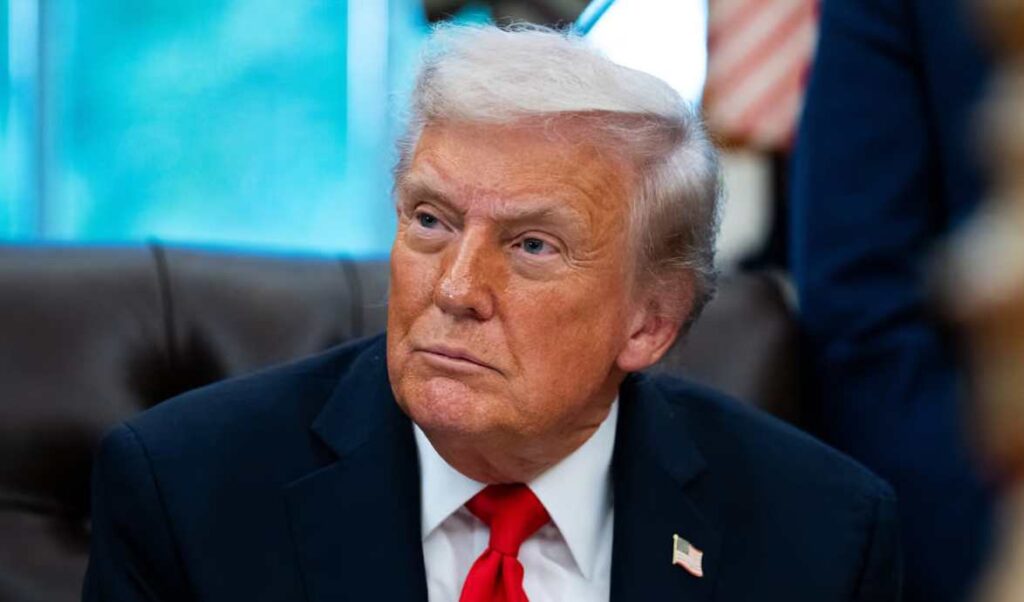Donald Trump has declared himself the ultimate decision-maker on whether his own administration should compensate him for damages stemming from previous federal investigations, telling reporters that any decision on the matter “would have to go across my desk.”
Speaking from the White House on Tuesday, the president claimed that the government owes him “a lot of money” over Justice Department inquiries into his conduct, while simultaneously asserting his authority to decide whether any potential payout would occur.
“It’s interesting, ’cause I’m the one that makes the decision, right?” Trump said when asked about administrative claims he filed seeking approximately $230 million in damages related to the FBI search of Mar-a-Lago and the probe into Russian interference in the 2016 election. The New York Times had first reported on the claims earlier that day.
Trump’s comments highlighted a bizarre loop — with Trump, as president, positioned to decide whether Trump, as claimant, should receive taxpayer money for investigations into Trump, the defendant.
“I’m suing myself,” Trump remarked last week, appearing to acknowledge the absurdity of the situation. “I’ll say, ‘Give me X dollars,’ and I don’t know what to do with the lawsuit.”
The president even hinted that if he were to receive any compensation, he might choose to donate it or use it to finance the construction of a new ballroom at the White House.
Trump’s filings were made under the Federal Tort Claims Act, a 1946 statute allowing private citizens to seek damages from the U.S. government for wrongful acts committed by federal employees. Typically, such cases are handled by nonpartisan officials within the Justice Department’s civil division, which is designed to operate independently of political influence.
However, many of Trump’s close allies now occupy senior roles within that same department — including Todd Blanche, his former lead defense lawyer in the Mar-a-Lago documents case, who now serves as deputy attorney general, and Stanley Woodward, the attorney who represented co-defendant Walt Nauta, now serving as associate attorney general.
Despite these connections, the Federal Tort Claims Act specifically excludes claims arising from discretionary or policy actions — making Trump’s attempt to seek damages for law enforcement investigations into his own conduct far outside the law’s intended purpose.
No sitting president has ever before attempted to obtain compensation from the federal government over investigations targeting their own actions.
One of Trump’s claims, filed in August 2024, alleges “malicious prosecution” in connection with the FBI’s search of Mar-a-Lago and subsequent charges accusing him of hoarding classified materials, according to the Associated Press. His attorneys claimed the prosecution was politically driven to undermine his presidential campaign and had forced him to spend tens of millions on legal defense.
Special counsel Jack Smith dismissed those charges last November, citing Justice Department policy that prohibits indicting a sitting president.
The second claim centers on the long-running investigation into possible links between Russia and Trump’s 2016 campaign — a probe that continues to infuriate him years after its conclusion.
Trump told reporters Tuesday that he was unaware of the precise amounts involved and suggested that he had not discussed the details with officials. “All I know is that, they would owe me a lot of money,” he said.
Justice Department spokesperson Chad Gilmartin responded in a statement: “In any circumstance, all officials at the Department of Justice follow the guidance of career ethics officials.”



